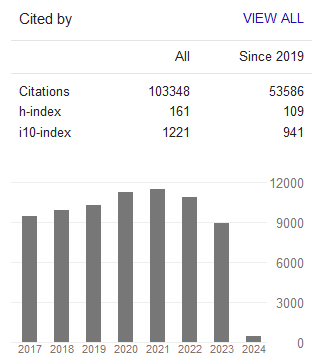Role of Audit Education in Minimizing Audit Expectation Gap (AEG) in Nigeria
- John Ihendinihu
- Silvia Robert
Abstract
Considerable evidence of a gap exists between the expectations of users of financial statements and theaccountancy profession as to the definitive scope and usefulness of an audit function. This gap is largelysuspected to be associated with ignorance and misconception of the public, and results in widespreadmisunderstanding and unreasonable expectations being imposed on the duties of auditors. This study was carriedout to determine whether the provision of auditing course as part of a third year business degree curriculumcould narrow down this gap. The study adopts a quasi-experimental pre-test post-test non-equivalent controlgroup design, using three (3) randomly selected intact groups of University students. A modified and validatedfive-point likert scale questionnaire was constructed and administered to each of the three groups. Resultsobtained using Analysis of Covariance (ANCOVA) and Post Hoc Pairwise Comparison reveals that exposure toa course on Auditing significantly enhanced the knowledge of students in the two experimental groups, andaccordingly reduced their expectations on the scope, reliability and decision usefulness of audit function. Thestudy however found no significant improvement in their perception of the key components based on industrywork experience of the students. The paper, therefore, concludes that audit education has significant effect onAEG in Nigeria and calls on the accountancy profession, educational institutions and regulators to initiateappropriate policy framework for increasing financial statement users’ knowledge and awareness of the natureand limitations of an audit through broad-based audit education and enlightenment programmes.- Full Text:
 PDF
PDF
- DOI:10.5539/ijbm.v9n2p203
Journal Metrics
Google-based Impact Factor (2023): 0.86
h-index(2023): 152
i10-index(2023): 1168

Index
- Academic Journals Database
- AIDEA list (Italian Academy of Business Administration)
- ANVUR (Italian National Agency for the Evaluation of Universities and Research Institutes)
- Berkeley Library
- CNKI Scholar
- COPAC
- EBSCOhost
- Electronic Journals Library
- Elektronische Zeitschriftenbibliothek (EZB)
- EuroPub Database
- Excellence in Research for Australia (ERA)
- Genamics JournalSeek
- GETIT@YALE (Yale University Library)
- IBZ Online
- JournalTOCs
- Library and Archives Canada
- LOCKSS
- MIAR
- National Library of Australia
- Norwegian Centre for Research Data (NSD)
- PKP Open Archives Harvester
- Publons
- Qualis/CAPES
- RePEc
- ROAD
- Scilit
- SHERPA/RoMEO
- Standard Periodical Directory
- Universe Digital Library
- UoS Library
- WorldCat
- ZBW-German National Library of Economics
Contact
- Stephen LeeEditorial Assistant
- ijbm@ccsenet.org
